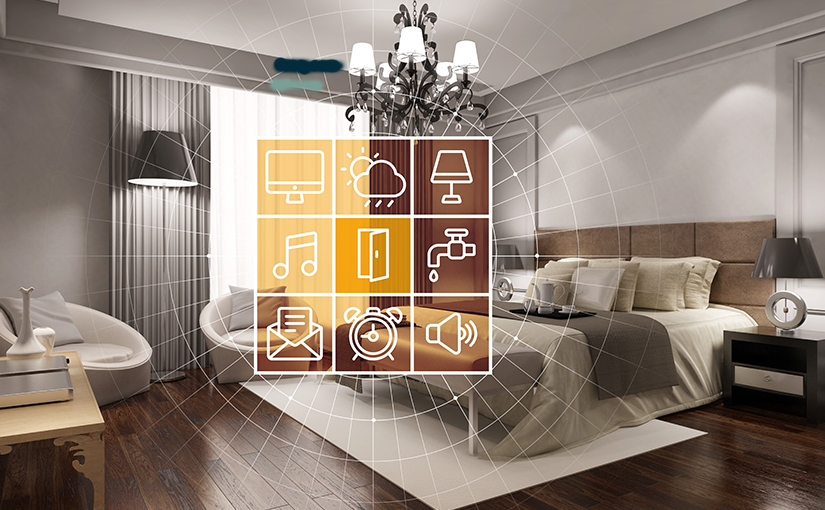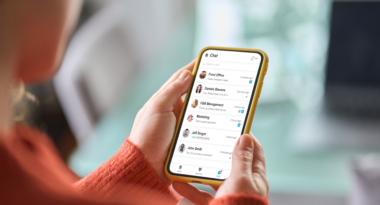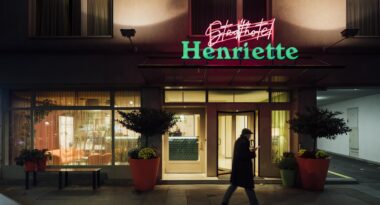In 2021, 10 percent of all jobs in the hospitality industry remained vacant. According to the U.S. Bureau of Labour Statistics (BLS), this amounts to 1.7 million job vacancies. In addition to that there was also an unprecedented wave of terminations: 1 million employees decided to hand in their notice and pursue their professional happiness elsewhere. In the wake of this unpleasant development, one thing became very clear to hotel operators: If they wanted to provide high-quality service and generate profit, despite the high turnover rate and rising wages, digital tools would become necessary to provide support in the daily operations.
Fast-paced developments within the Hotel Tech Market
The hotel tech market has reacted to the state of the industry and its needs: Meanwhile, there is a broad range of software solutions that are meant to facilitate the management of businesses and assist hoteliers and their employees in their day-to-day work. Due to the strong demand for digital tools in the industry, new systems are launched annually, and there is a broad product range available, particularly in the market segments PMS (57 new products in 2021), Hotel Management System (10 new products in 2021), Staff Collaboration Software (in total 44 products) and Housekeeping Software (4 new products in 2021). The following graph is taken from Hotel Tech Report’s Market Leader Index and shows the diverse range of products that are currently available on the hotel technology market:

This article will show you in what areas more and more hotels are using digital tools to reduce the workload of their staff and to maintain the service quality at a high-level, in spite of the high turnover rate.
Digital Communication—Ensuring Efficiency and Information Transparency within the Team
A smaller workforce means that employees need to take on multiple roles in the hotel, for example, engineers carrying out housekeeping tasks or front office staff taking care of room service. Hoteliers are now forced to think about how all tasks within a hotel can be fulfilled with fewer staff. In line with the principle “Do more with less”, they’re also adapting to the fact that they might have to manage daily operations with fewer staff in the future as well. In comprehensive trainings, employees are now familiarized with the different jobs in a hotel.
Digital communication facilitates everyday work and makes the hotel workplace more attractive again.
To make sure that small teams work together in the best possible way, efficient communication and information transparency are key. This is why more and more businesses are discarding the use of paper, phone calls and e-mails and are instead opting for digital collaboration platforms that can be accessed via smartphones. These platforms facilitate the internal communication, especially with employees that are always on the move when completing tasks and are therefore hard to reach by phone. Moreover, standards and SOPs can be uploaded to these platforms and are then available from anywhere. This way, employees can inform themselves about the different procedures on their smartphones and don’t need to comb through thick folders to find the information they need! The biggest advantage that digital communications platforms provide though is that they connect teams, facilitate their day-to-day work and make the hotel as a workplace appealing again.
The review platform Hotel Tech Report gives an overview of the current most popular Collaboration tools for hotels.
High Quality Service despite smaller workforce: Self-Service-Check-in & Chatbots
How can the hotel service be kept at a high level despite fewer staff resources? Nowadays, it’s no longer unusual that from the booking of a holiday up to the payment everything happens digitally. What would have caused astonishment a couple of years ago though, isn’t all too surprising now: When you go to a hotel now, you come across more and more Self-Service-Check-ins that are replacing the traditional reception. Moreover, when it comes to guest communication, numerous hotels, such as the international Radisson Hotel Group, now use messaging platforms. This enables the staff to respond quickly and efficiently to guest requests. Long phone calls between the guest and the front office respectively the front office and other departments are no longer necessary. Furthermore, interfaces between hotel internal collaboration tools and chatbots are particularly efficient as they do not only enable the communication between the employees but also the interaction with guests, thus killing two birds with one stone. All of this is possible in one single platform.

Digital Housekeeping – intelligent use of staff resources
Since the start of the pandemic, hygiene has become the focus of attention in the hospitality industry. The implementation of national guidelines posed a big challenge for the hotel teams. To ensure that the room cleanings were carried out efficiently and in accordance with the constantly changing guidelines and to use the limited staff resources optimally, many hotels decided to implement housekeeping software that would facilitate not only the planning process but also the depiction of standardized procedures. The review platform Hotel Tech Report gives an overview of the current most popular Housekeeping Software.
Maintenance Work – Sustainable Quality Assurance through Digital Tools and NFC technology
Many hoteliers realized the importance of regular and proper maintenance work, which ensures the durability of appliances and facilities, at the latest during the hotel closures in the pandemic. To make sure that the necessary inspections are executed in due time and to support the engineers in their work, many hoteliers decided to implement digital tools for the Facility Management and Asset Management. These tools depict the maintenance procedure in a structured way and make sure that the responsible person is notified when an appliance needs to be inspected. This information transparency facilitates the collaboration between the multiple teams immensely.
Economical equipment management saves working time and is sustainable.
Moreover, the number of hotels using NFC tags in their day-to-day operations is increasing. These versatile chips can be attached to various checkpoints, such as fire extinguishers, elevators or emergency lighting. Scanning the NFC tag confirms that a checkpoint was inspected. Furthermore, by connecting the NFC tags to articles in a digital communications platform, they provide necessary knowledge on site. This generates sustainability, efficient device management and facilitates the day-to-day work of engineers.
A digital platform that has it all: Collaboration, Housekeeping and Facility Management:

About the author
Michael Santner
Narratives about impoverished poets during his studies encouraged him to follow his passion in a secure job. In hotelkits marketing he takes care of packing the numerous ideas of his colleagues into exciting stories.





